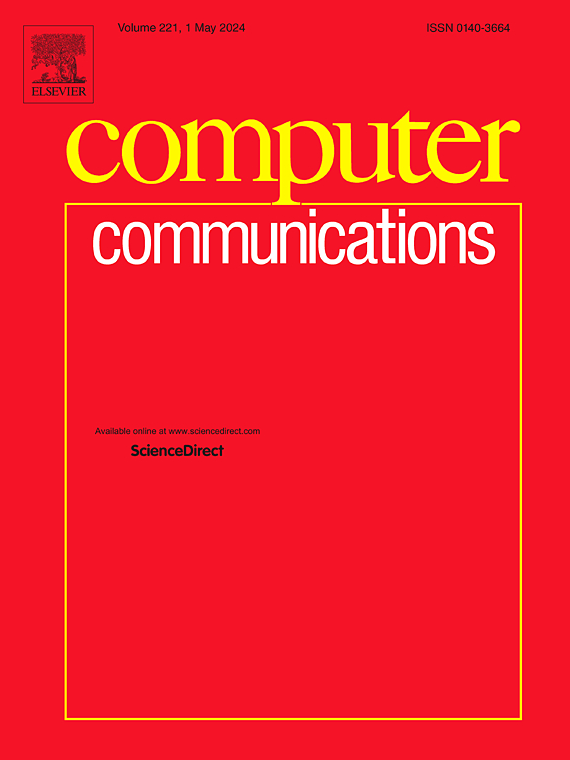Robustness of decentralised learning to nodes and data disruption
IF 4.3
3区 计算机科学
Q1 COMPUTER SCIENCE, INFORMATION SYSTEMS
引用次数: 0
Abstract
In the active landscape of AI research, decentralised learning is gaining momentum. Decentralised learning allows individual nodes to keep data locally where they are generated and to share knowledge extracted from local data among themselves through an interactive process of collaborative refinement. This paradigm supports scenarios where data cannot leave the data owner node due to privacy or sovereignty reasons or real-time constraints imposing proximity of models to locations where inference has to be carried out. The distributed nature of decentralised learning implies significant new research challenges with respect to centralised learning. Among them, in this paper, we focus on robustness issues. Specifically, we study the effect of nodes’ disruption on the collective learning process. Assuming a given percentage of “central” nodes disappear from the network, we focus on different cases, characterised by (i) different distributions of data across nodes and (ii) different times when disruption occurs with respect to the start of the collaborative learning task. Through these configurations, we are able to show the non-trivial interplay between the properties of the network connecting nodes, the persistence of knowledge acquired collectively before disruption or lack thereof, and the effect of data availability pre- and post-disruption. Our results show that decentralised learning processes are remarkably robust to network disruption. As long as even minimum amounts of data remain available somewhere in the network, the learning process is able to recover from disruptions and achieve significant classification accuracy. This clearly varies depending on the remaining connectivity after disruption, but we show that even nodes that remain completely isolated can retain significant knowledge acquired before the disruption.
分散学习对节点和数据中断的鲁棒性
在活跃的人工智能研究领域,去中心化学习正在获得动力。分散学习允许单个节点将数据保存在生成数据的本地,并通过协作改进的交互过程在它们之间共享从本地数据中提取的知识。这种范例支持这样的场景:由于隐私或主权原因,或者实时约束,数据无法离开数据所有者节点,从而迫使模型接近必须执行推理的位置。去中心化学习的分布式特性意味着相对于集中化学习的重大新研究挑战。其中,本文主要研究鲁棒性问题。具体来说,我们研究了节点中断对集体学习过程的影响。假设给定百分比的“中心”节点从网络中消失,我们将重点放在不同的情况下,其特征是(i)节点间数据的不同分布以及(ii)相对于协作学习任务开始时发生中断的不同时间。通过这些配置,我们能够显示连接节点的网络属性之间的重要相互作用,在中断之前或缺乏之前集体获得的知识的持久性,以及中断前后数据可用性的影响。我们的研究结果表明,分散的学习过程对网络中断具有显著的鲁棒性。只要在网络的某个地方仍然有少量的数据可用,学习过程就能够从中断中恢复并实现显著的分类准确性。这显然取决于中断后剩余的连通性,但我们表明,即使是完全隔离的节点也可以保留中断前获得的重要知识。
本文章由计算机程序翻译,如有差异,请以英文原文为准。
求助全文
约1分钟内获得全文
求助全文
来源期刊

Computer Communications
工程技术-电信学
CiteScore
14.10
自引率
5.00%
发文量
397
审稿时长
66 days
期刊介绍:
Computer and Communications networks are key infrastructures of the information society with high socio-economic value as they contribute to the correct operations of many critical services (from healthcare to finance and transportation). Internet is the core of today''s computer-communication infrastructures. This has transformed the Internet, from a robust network for data transfer between computers, to a global, content-rich, communication and information system where contents are increasingly generated by the users, and distributed according to human social relations. Next-generation network technologies, architectures and protocols are therefore required to overcome the limitations of the legacy Internet and add new capabilities and services. The future Internet should be ubiquitous, secure, resilient, and closer to human communication paradigms.
Computer Communications is a peer-reviewed international journal that publishes high-quality scientific articles (both theory and practice) and survey papers covering all aspects of future computer communication networks (on all layers, except the physical layer), with a special attention to the evolution of the Internet architecture, protocols, services, and applications.
 求助内容:
求助内容: 应助结果提醒方式:
应助结果提醒方式:


